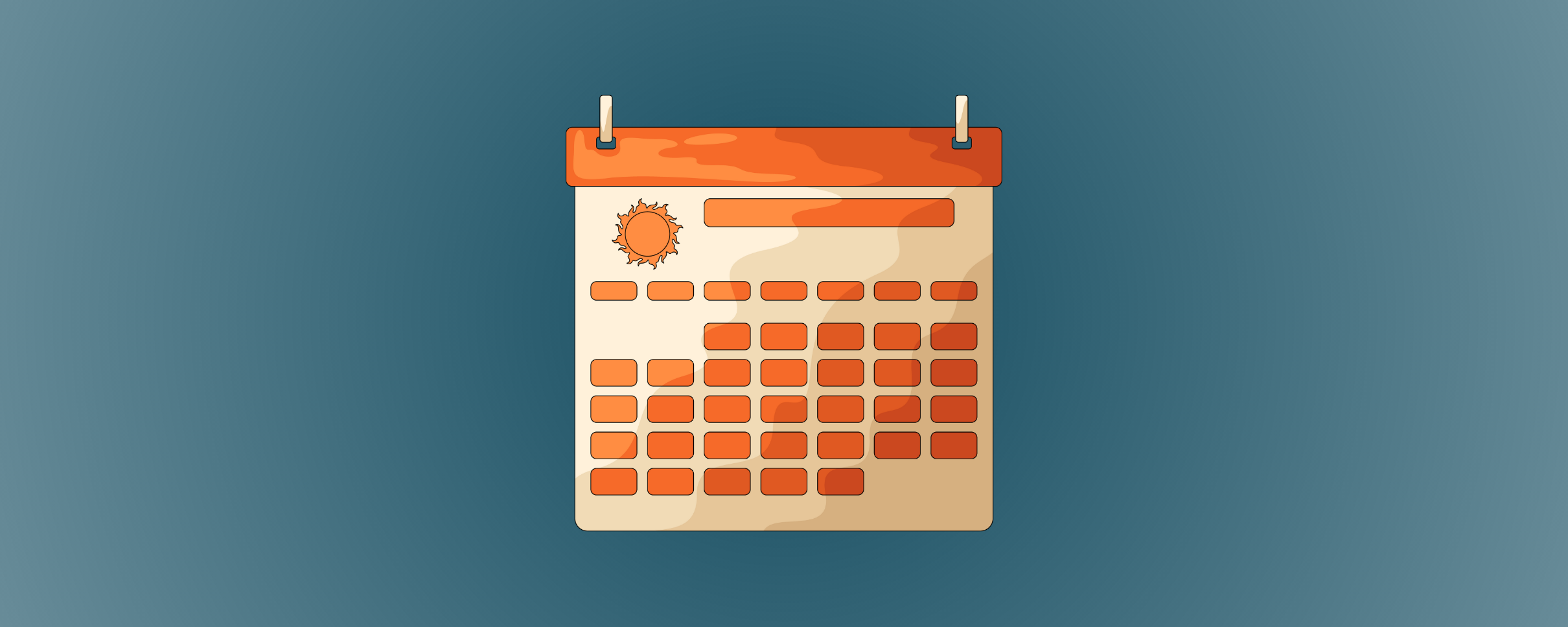April and May are crunch-time for high school and college students. Final papers, exams, APs and more are all coming up. As you buckle down to study, there’s one thing being tested that you won’t find in any of your course syllabi or study guides – your executive function skills.
If you’re not even sure what executive function (EF) skills are, that’s OK. Most schools don’t directly teach these skills, which include things like planning, organization, and time management.
Strong EF skills make the difference between stress and success during busy crunch times like this. Here are our tips for more success and less stress this spring finals season.
Make a study plan first
With so much on your plate, it’s tempting to go to extremes: either diving in and studying as much as you can, or avoiding schoolwork entirely. Neither of these options are ideal.
Start instead with one hour of time that’s dedicated entirely to making a study plan. Make a list of every exam and big assignment you have coming up. From there, break each exam and assignment into smaller steps. For an exam, you might break it down into all the units covered in class during the semester. For a final paper, you might break your work into tasks like research, outlining, drafting, and revising.
The more you can break things down, the better. In fact, learning to break your work into parts, is an important EF skill that helps make everything – from schoolwork to personal projects, like planning a big trip – more manageable. (Professionals in the working world use this skill every day to manage teams and projects, so the sooner you learn this skill, the better!)
Make friends with your clock and calendar
Once you’ve broken everything into parts, you can start planning what you’ll do when. First, try to determine how much time each of those smaller tasks will take. Estimating the time it takes to do something is an EF skill in itself and one that many students struggle with. Is the “research” step for that final paper really one hour on one day or is it more like 3 to 5 hours spread over several days? Adjust your steps accordingly.
Now start putting all your steps into a planner or calendar, whether that’s something physical or on a smart-device. Consider alternating between subjects and projects. If you set aside two hours after class to study, perhaps you do the outline for your history paper for 45 minutes, take a short break, and then refresh your memory on a unit from your calculus class for another 45 minutes. Work backwards from when you have to have each thing done, and make a plan that allows you to complete each step without pulling any cram sessions or all-nighters.
Work your plan
Once you’ve got a plan, it’s easier to get started. You’re no longer sitting down for an immeasurable and interminable study session. You’re sitting down for the first hour of a well-thought-out plan to do one, manageable thing, like creating your first 30 flash cards for your chemistry exam. It may not be fun, but planning ahead leaves you more free time to do fun things, and prevents the stress caused by massive procrastination.
Your plan will probably adjust over time and that’s a good thing. It means you’re actively using it and making progress, even if that progress is faster or slower than you’d initially anticipated. Adjusting as you go flexes a whole set of important EF skills, like flexible thinking and the ability to assess your own progress.
Just know this: the hour you put into making the plan in the first place is far from wasted. On the contrary, the plan is saving you hours of time and it’s empowering you to study in a manageable way to minimize last-minute stress.
Build in fun rewards
When you’re in the library a lot, it’s good to have an outlet, something to look forward to after you check off another task in your plan.
Invite friends over to watch a favorite show after one of your evening study sessions, or plan an afternoon hike after a weekend morning of writing and editing. In the same way that breaking your work into smaller chunks makes studying more manageable, interspersing the plan with rewards for progress helps keep you motivated and in balance, even during finals.
Staying motivated and focused are important EF skills - some students may struggle with one or both of these more than others. By building in breaks and fun rewards, you’re priming yourself for greater success in both of these areas.
Go to the beach! (And edit that plan.)
After you finish that last final, head straight for whatever fun things you have planned for summer. You’ve earned the time off! As you’re making the transition from school to summer, it’s a huge plus if you can also take 15 minutes to self-assess, while all the studying is fresh in your mind. Ask yourself: What worked well with my plan that I should do next time? What didn’t work well and how should I adjust things next time?
Leave yourself a quick note in your phone and then forget about it until midterms or finals roll around again. “Future You” will thank “Present You.” At the end of the day, that’s what strong EF skills are all about - having the skills to do things today that you’ll thank yourself for tomorrow.
And, remember, if these skills don’t come naturally to you (yet!) that’s ok! The part of your brain that controls your EF skills doesn’t finish developing until your mid-20s. If you need support to build that killer study plan, an Applerouth Executive Function Coaches can help. Contact us today at 866-789-7737. Future You thinks it’s a good idea.





.webp)



